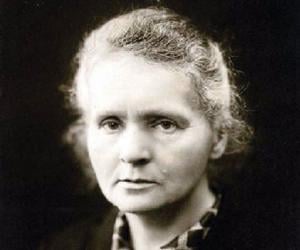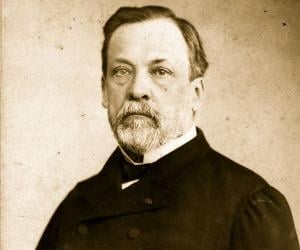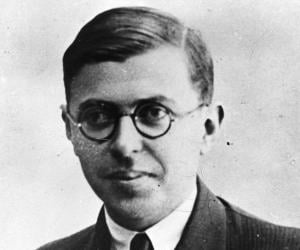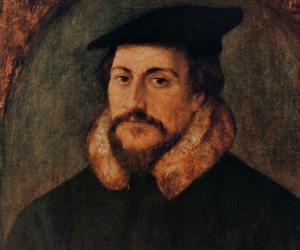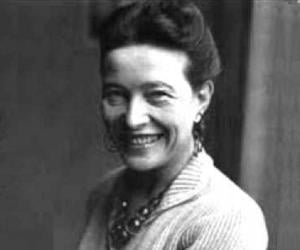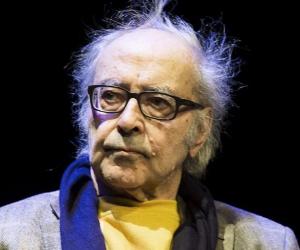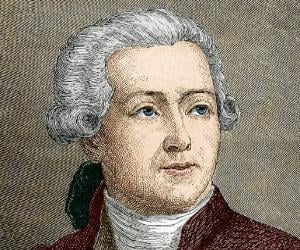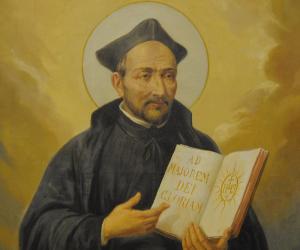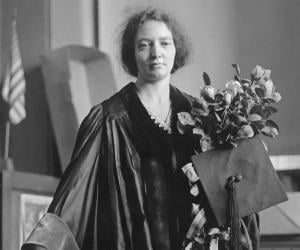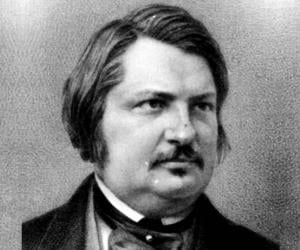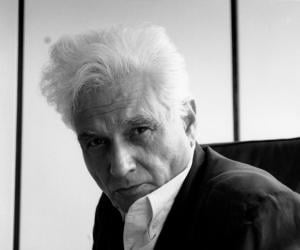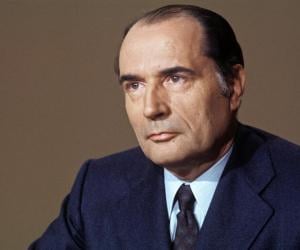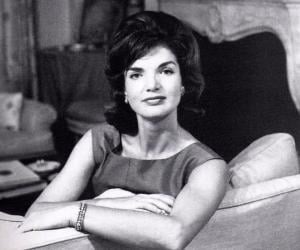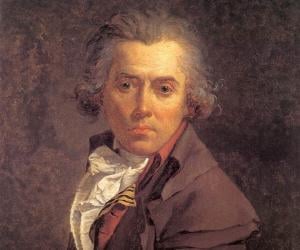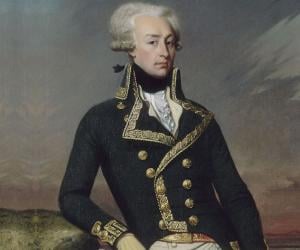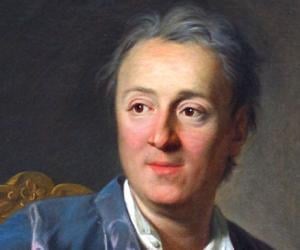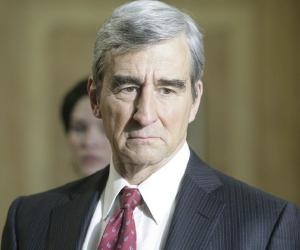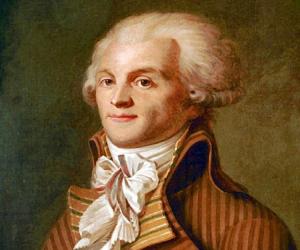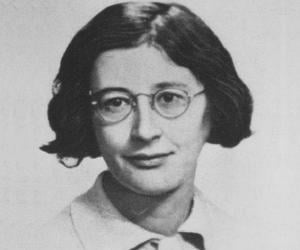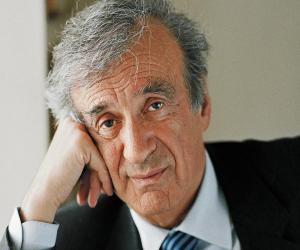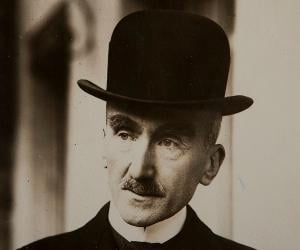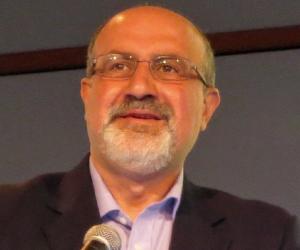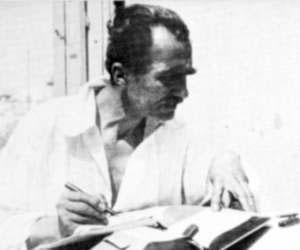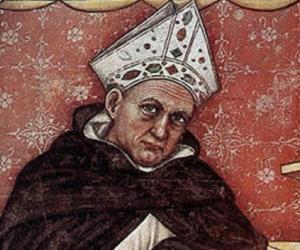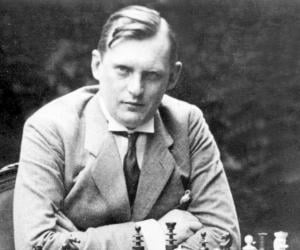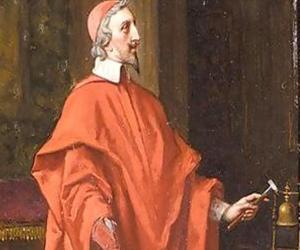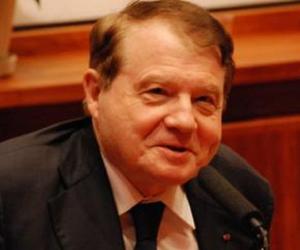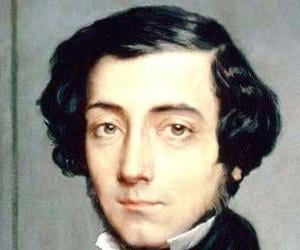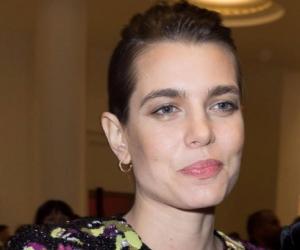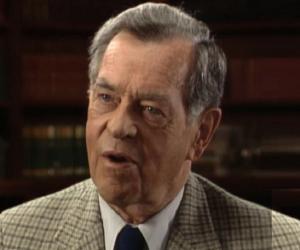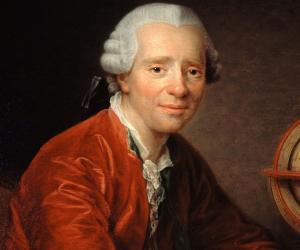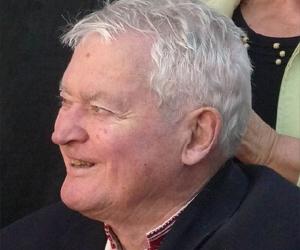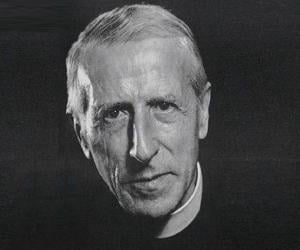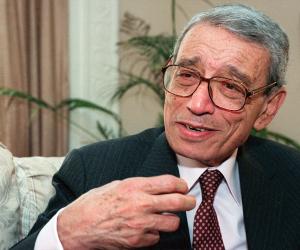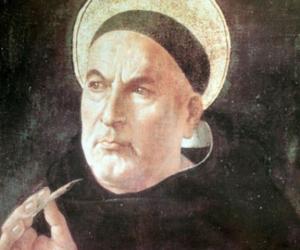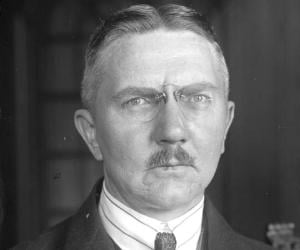Jean-Paul Sartre was a French philosopher, writer, literary critic, and political activist. One of the most important personalities in the philosophy of phenomenology and existentialism, Sartre played a crucial role in 20th-century French philosophy. His work continues to influence literary studies, post-colonial theory, sociology, and critical theory. He was honored with the 1964 Nobel Prize in Literature.
French theologian, pastor, and reformer John Calvin was a major figure during the Protestant Reformation in the 16th century. He was influential in the development of the system of Christian theology later called Calvinism. Originally trained as a humanist lawyer, he broke from the Roman Catholic Church to embrace Protestantism. As an apologetic writer, he generated much controversy.
The Paris-born French-Swiss director and screenwriter had the reputation of adding new dimensions to filmmaking with his experimentation, a trend which came to be known as the French New Wave. The director of acclaimed films like Breathless, My Life to Live and Pierrot le Fou, Jean-Luc Godard was married to actress Anna Karina. He is regarded as an all-time great director.
Antoine Lavoisier was a French chemist and nobleman. He played a crucial role during the chemical revolution of the 18th-century. Widely regarded as the father of modern chemistry, Lavoisier had a major influence on the history of biology as well as the history of chemistry. He also helped build the metric system.
Saint Ignatius of Loyola was a Spanish Basque Catholic priest and theologian in the 16th century. He was one of the founders of the religious order called the Society of Jesus and served as its first Superior General at Paris. He was an inspired spiritual director and the founder of what is today known as "Ignatian spirituality."
Marie Curie and Pierre Curie’s daughter, Irène Joliot-Curie, herself a brilliant scientist, won the 1935 Nobel Prize in Chemistry, along with her husband, Joliot-Curie, for discovering artificial radioactivity. She was also one of the first three female French government members. She tragically died of leukemia caused by exposure to radiation.
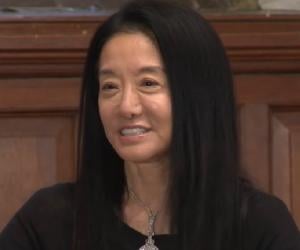
Beginning her career as an editor for Vogue, American fashion designer Vera Wang began to work independently at the age of forty, designing wedding dresses, evening gowns and figure skating costumes for her celebrity patrons, eventually opening retail stores in several big cities across the world. Also a successful figure skater, she competed at the 1968 U.S. Figure Skating Championships.
Honoré de Balzac was a French playwright and novelist. Since his works gave a detailed, unfiltered representation of society, Honoré de Balzac is generally considered one of the founders of realism and an important figure in European literature. Renowned for creating multi-faceted characters, Balzac influenced several popular writers like Charles John Huffam Dickens, Émile Zola, Henry James, and Gustave Flaubert.
Jacques Derrida was a French philosopher remembered for developing deconstruction, a form of semiotic analysis. Derrida is one of the most influential figures associated with postmodern philosophy and post-structuralism. He also had a major influence on academic disciplines like philosophy, law, political theory, anthropology, applied linguistics, and historiography. He also influenced music, art criticism, art, and architecture.
Jackie Kennedy was a literature editor, photographer, and socialite who was once married to the former American President John F. Kennedy. She became the First Lady of the United States when her husband became the president. She was known for her iconic fashion style. She is considered one of the most popular and recognizable First Ladies in American history.
Jacques-Louis David was a French painter. Widely regarded as the greatest painter of the Neoclassical era, David's works had a strong influence in France in the early-19th century. His works are often linked to the birth of Romanticism. Many of his pupils, such as Antoine-Jean Gros and Jean-Auguste-Dominique Ingres, went on to become successful and popular painters.
Marquis de Lafayette was a French aristocrat and military officer, who is remembered for fighting in the American Revolutionary War, as the commander of American troops in several battles. After returning to France, he played key roles in the French Revolution of 1789 and the July Revolution of 1830. Considered a hero in both America and France, he advocated the end of slavery.
Denis Diderot revolutionized the Age of Enlightenment as the co-founder of Encyclopédie, which was banned for questioning religion. He had flirted with the idea of joining the theater and becoming a priest, and even studied law, but later devoted himself to languages, literature, and philosophy.
Sam Waterston is an American actor, director, and producer. He is popular for his contribution across all three major acting mediums. An active humanitarian, Sam Waterston works closely with organizations, such as Meals on Wheels, Refugees International, Oceana, and The United Way. In 2012, he was honored with the Goodermote Humanitarian Award for his support of refugees.
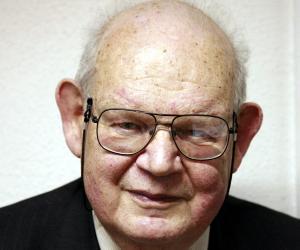
Noted mathematician and polymath, Benoit B. Mandelbrot is perhaps best known for his work on fractal. He not only coined the term, but also used computer-constructed images to illustrate the mathematical definition. Also credited with the discovery of Mandelbrot set and Mandelbrot law, he established that even those things which were apparently chaotic or rough had a "degree of order".
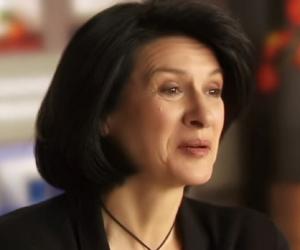
Fashion and jewelry designer Paloma Picasso is best known as the daughter of legendary artists Pablo Picasso and Françoise Gilot. She began her career designing costume jewelry for Yves Saint-Laurent and later designed for Tiffany & Co. Known for her signature red lipstick, she also has her own range of perfumes.
Nobel Peace Prize-winning activist Elie Wiesel is best remembered for his book Night, which relates his traumatic experience as a Jewish prisoner in the Nazi concentration camps. After surviving the Holocaust, he became a journalist and a human rights activist, and also helped in establishing the U.S. Holocaust Memorial Museum.

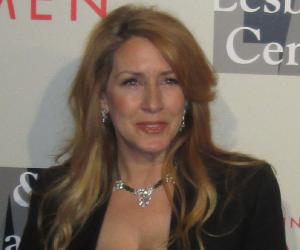
French philosopher, Henri Bergson, is remembered for his contribution to the tradition of continental philosophy. His works were considered extremely influential, especially during the first half of the 20th century. He received the Nobel Prize in Literature (1927) and Grand-Croix de la Legion d'honneur (1930). He was a simple man who led a humble life despite his great achievements.
Nikos Kazantzakis was a Greek writer whose works earned him nine nominations for the prestigious Nobel Prize in Literature. Regarded as a giant of modern Greek literature, Kazantzakis achieved international fame when his works, such as The Life And Times Of Alexis Zorba and The Last Temptation of Christ, were adapted into feature films.

Renowned sociologist and cultural theorist Jean Baudrillard is remembered for introducing concepts of hyperreality and simulacrum. Initially a teacher of German literature in schools, he later taught sociology at Paris X Nanterre. He coined the phrase the desert of the real, which was later used in the film The Matrix.
Albertus Magnus was a friar, bishop, and philosopher. Regarded by some as the greatest German theologian and philosopher of the Middle Ages, Albertus' writings have inspired the iconography of the archivolts and tympanum of the 13th-century portal of Strasbourg Cathedral. Remembered for his contribution to academics, several education institutions have been named after Albertus Magnus.
Alexander Alekhine was a French and Russian chess player renowned for his imaginative and fierce attacking style. He also possessed great positional and endgame skill, which he used effectively to reign as the World Chess Champion from 1927 to 1935 and then from 1937 to 1946. Also a theoretician, Alexander Alekhine innovated several opening variations, including the Alekhine's Defence.
Cardinal Richelieu was a French clergyman and statesman who was active in the early 17th century. He held powerful positions in both the Catholic Church and French government and served as the chief minister to Louis XIII of France in 1624. He helped the French maintain their dominance in the Thirty Years' War that engulfed Europe.
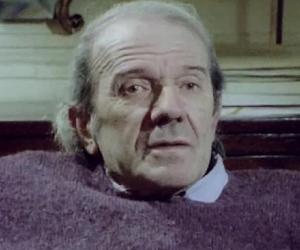
Gilles Deleuze was a French philosopher who wrote extensively on philosophy, film, fine art, and literature. Widely regarded as one of the greatest philosophers of all time, Deleuze's works have influenced a wide range of disciplines, such as philosophy, literary theory, and art. His work has also influenced movements like postmodernism and post-structuralism.
French virologist Luc Montagnier is known for discovering the human immunodeficiency virus (HIV) which led him to jointly receive the 2008 Nobel Prize in Physiology or Medicine. Montagnier also made headlines promoting controversial and unverified claims related to vaccinations, homeopathy and COVID-19 pandemic, which he argued as man-made and possibly a result of an attempt to create an HIV/AIDS vaccine.
French diplomat and political scientist Alexis de Tocqueville is best remembered for his written works The Old Regime and the Revolution and Democracy in America. He was part of French politics, primarily during the July Monarchy and the Second Republic. He had been the minister of foreign affairs briefly.
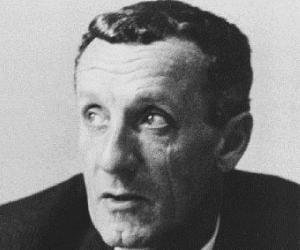
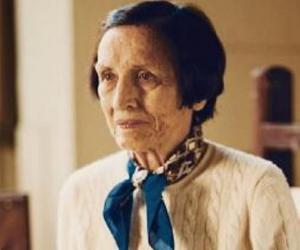
Françoise Gilot is a French painter whose professional career was overshadowed by her long and turbulent relationship with Spanish painter Pablo Picasso. After breaking up with Picasso, with whom Gilot had two children, the former deterred galleries from buying her work. He even tried blocking the release of her memoir Life With Picasso which was released in 1964.
Jean le Rond d'Alembert was a French mathematician, physicist, philosopher, and music theorist. He is credited with coming up with d'Alembert's formula, a solution to the one-dimensional wave equation, which is named after him. His life and work inspired Andrew Crumey's 1996 novel, D'Alembert's Principle.
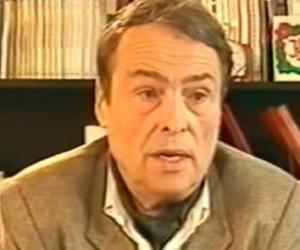
Renowned sociologist and intellectual Pierre Bourdieu is best remembered for his theory of habitus. Initially sent to Algeria as part of the French Army, he later taught and conducted ethnographic research there. His best-known work remains La Distinction, and he also inspired a hit French documentary.
French paleontologist and Jesuit priest Pierre Teilhard de Chardin is remembered as someone who deviated from theology to science. He discovered the fossilized remains known as the Peking man in China, but faced a lot of opposition from his religious superiors when it came to publishing his scientific thoughts.
Grandson of former Egyptian prime minister Boutros Ghali Bey, politician Boutros Boutros-Ghali is remembered for his tenure as the secretary-general of the UN, which witnessed peacekeeping activities in war-torn areas such as Bosnia and Herzegovina. His illustrious career boasted of various prestigious academic positions and a Fulbright scholarship.
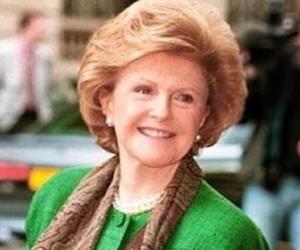
Apart from serving as the US ambassador to France and as a Democratic political activist, Pamela Harriman had also been in the news for her three marriages, all to high-profile men, namely, Randolph Churchill, Leland Hayward, and W. Averell Harriman. She also had countless affairs with rich and influential men.
German banker Hjalmar Schacht was appreciated for his role in saving the Weimar Republic from inflation and later served as the Reichsminister of Economics under Adolf Hitler. Following as assassination attempt on Hitler, her was imprisoned, but was later freed and then set up his own bank in Düsseldorf.
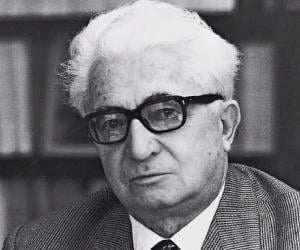
Fernand Braudel was a French historian who led a group of historians who were associated with the Annales School. Braudel is credited with popularizing the school in France. As the leader of the school during the 1950s and 1960s, Braudel had a major influence on historical writings around the world. He is also counted among the forefathers of world-systems theory.
